ACT – Addressing Corruption Together: Second Offline Workshop Held in Vilnius for Legal Professionals from Ukraine and Moldova
On 7–8 October 2025, the second offline workshop within the framework of the “ACT – Addressing Corruption Together” project took place in Vilnius, Lithuania. The initiative aims to strengthen the capacity of legal professionals from Ukraine and Moldova to prevent and combat corruption through a human-rights-based approach.
The project is implemented by the Raoul Wallenberg Institute of Human Rights and Humanitarian Law (Sweden) in partnership with the Ukrainian Bar Association (UBA), the UBA Human Rights Institute (Ukraine), and Action for Justice (Moldova), with the support of the Swedish Institute. Its goal is to empower legal professionals from both countries to advance anti-corruption practices, foster integrity in the professional environment, and exchange experience with peers from the EU member states.
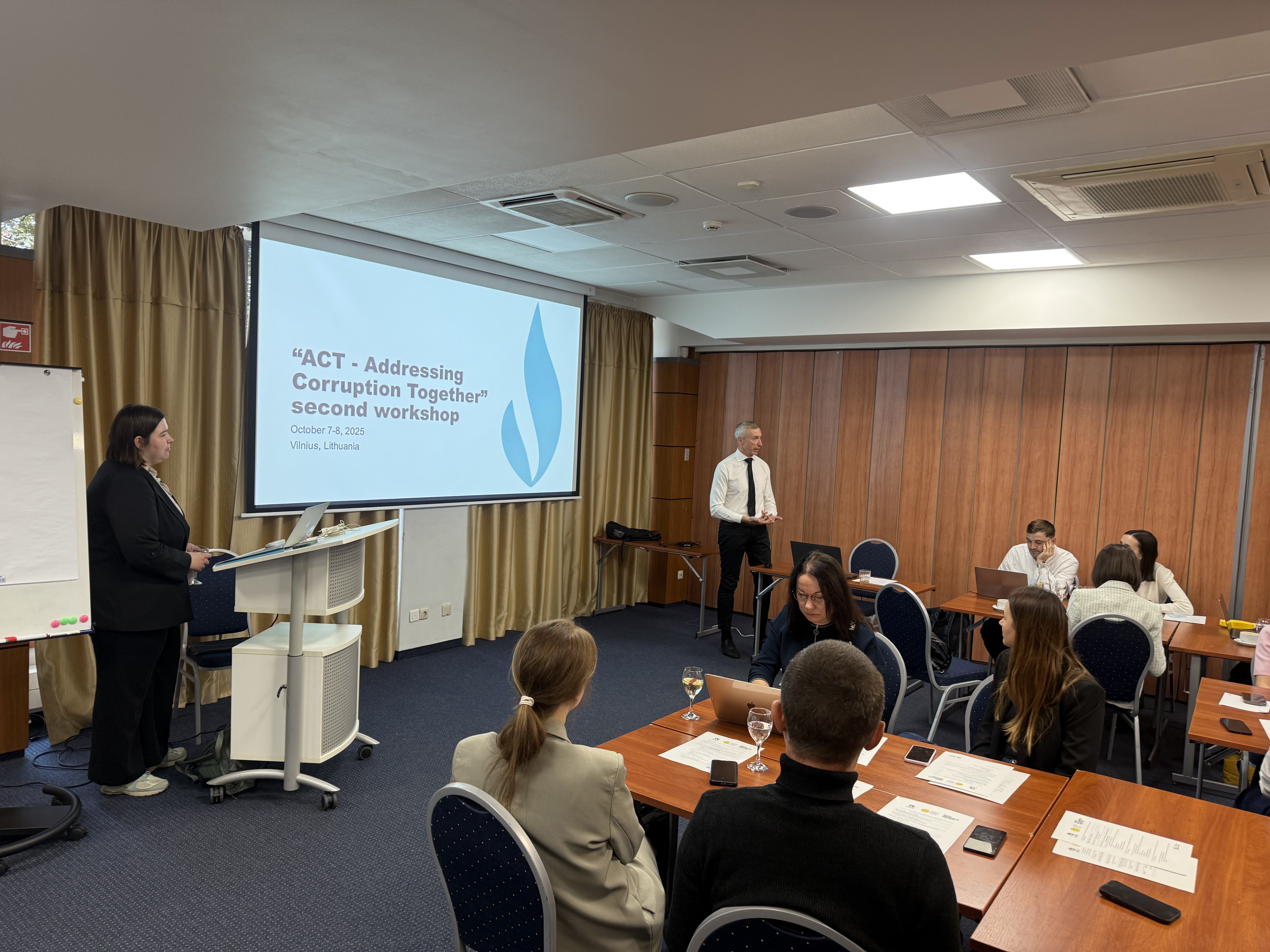
The workshop brought together legal practitioners from Ukraine and Moldova who are continuing their work on group initiatives launched during earlier stages of the programme. The participants were accompanied by Tatsiana Rahozina (Raoul Wallenberg Institute), Kateryna Pyshchyk (Ukrainian Bar Association), Ecaterina Vornicescu and Alexandrina Eşanu (Action for Justice).
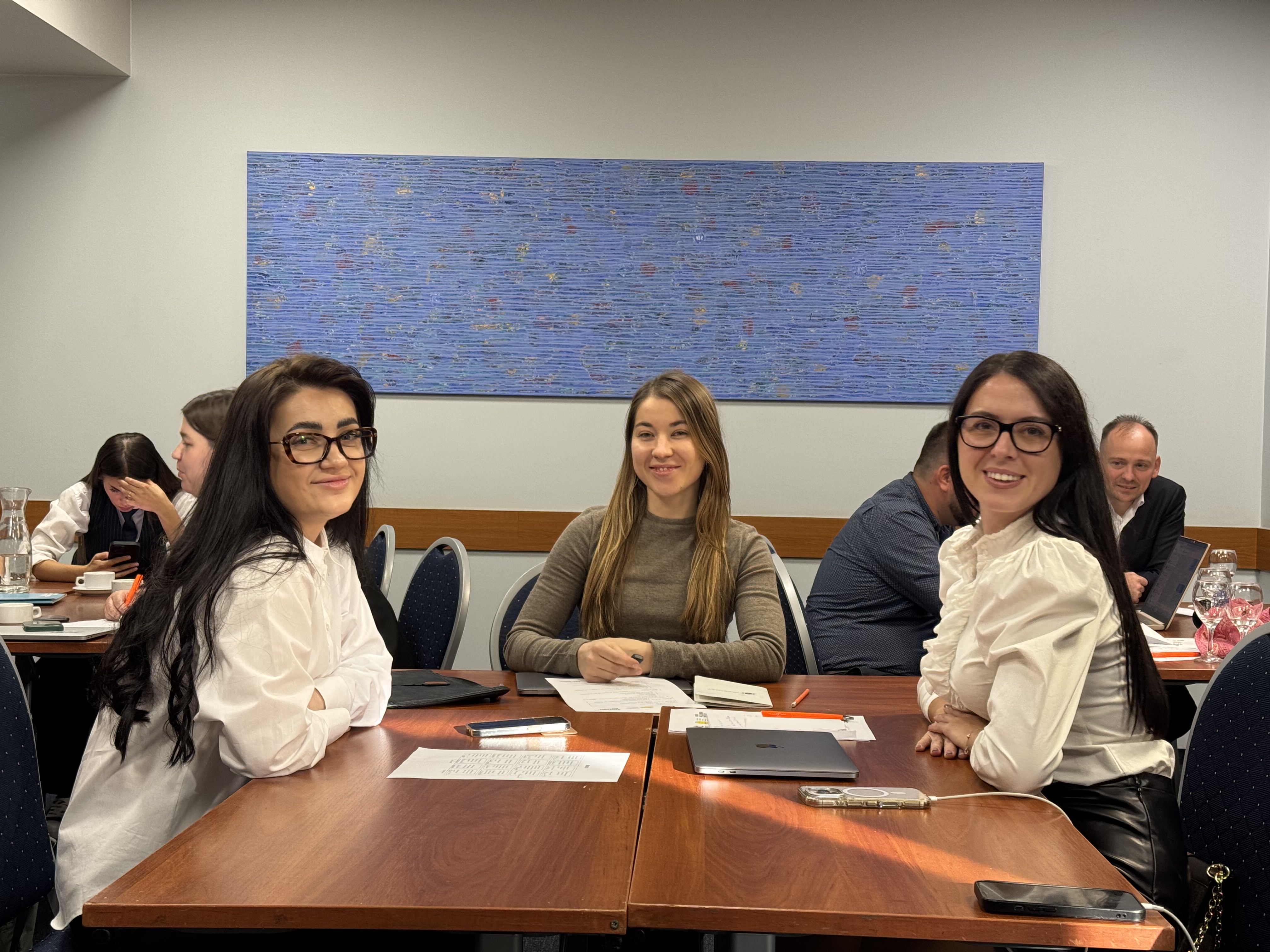
Group Work and Project Presentations
The core of the workshop focused on collaborative teamwork around four anti-corruption initiatives. Over two days, participants presented their ideas, discussed challenges, shared progress, and received insightful feedback from peers and mentors — Prof. Dr. Raimundas Kalesnykas (Turiba University, Latvia; National Anti-Corruption Association, Lithuania), Morten Koch Andersen (Raoul Wallenberg Institute, Sweden), and Ketevan Bolkvadze (Lund University, Sweden).
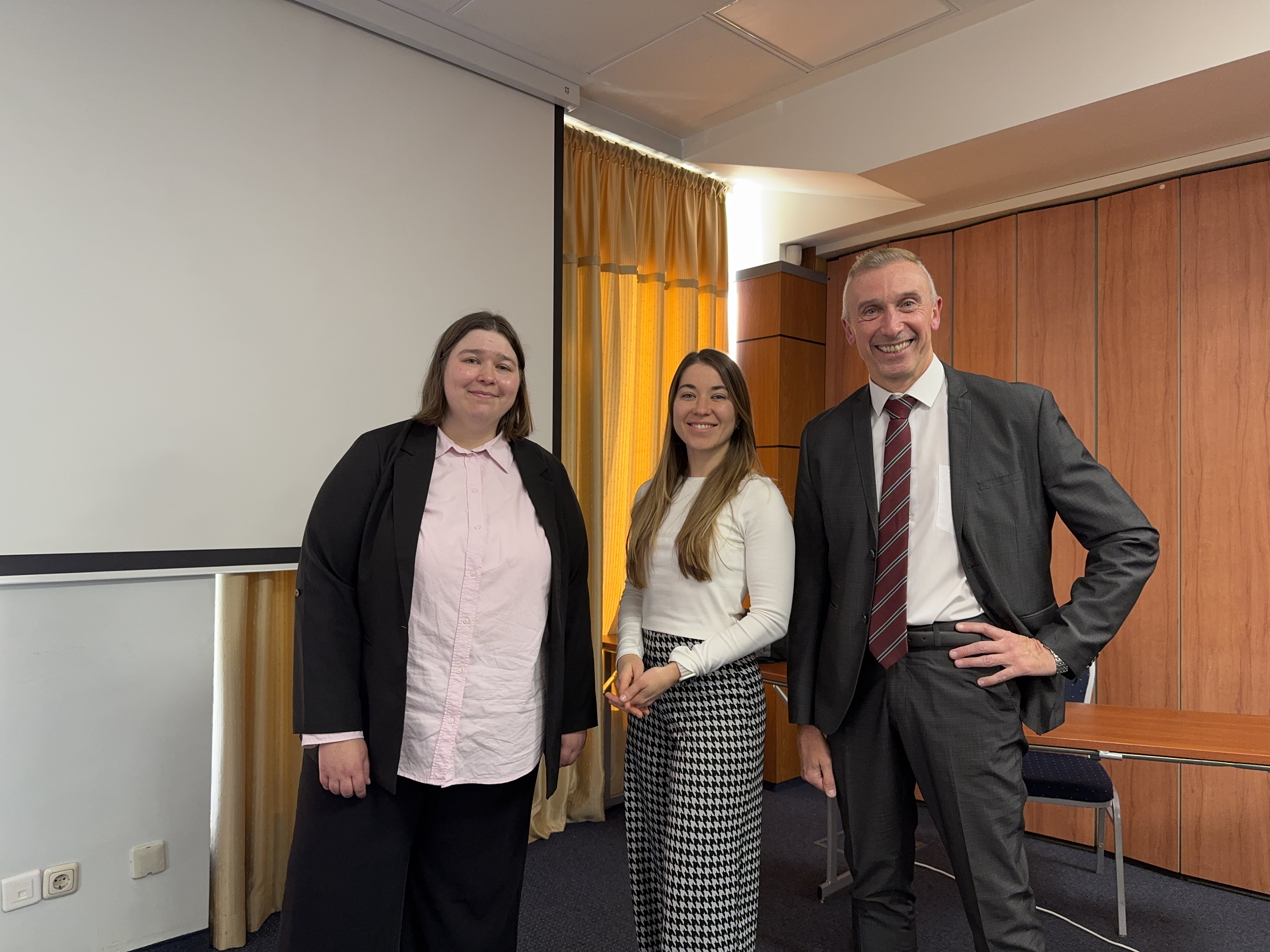
The teams are developing the following initiatives:
- Group 1 – Action Plan to Minimize Corruption Risks in International Assistance at the National Level in the Context of European Integration
Participants: Nataliia Shpak, Artem Ripenko, Daria Arman, Marin Cihai, Alina Adelshyna, Dmytro Vozniuk, Armen Oganesean, Victoria Butuşanu.
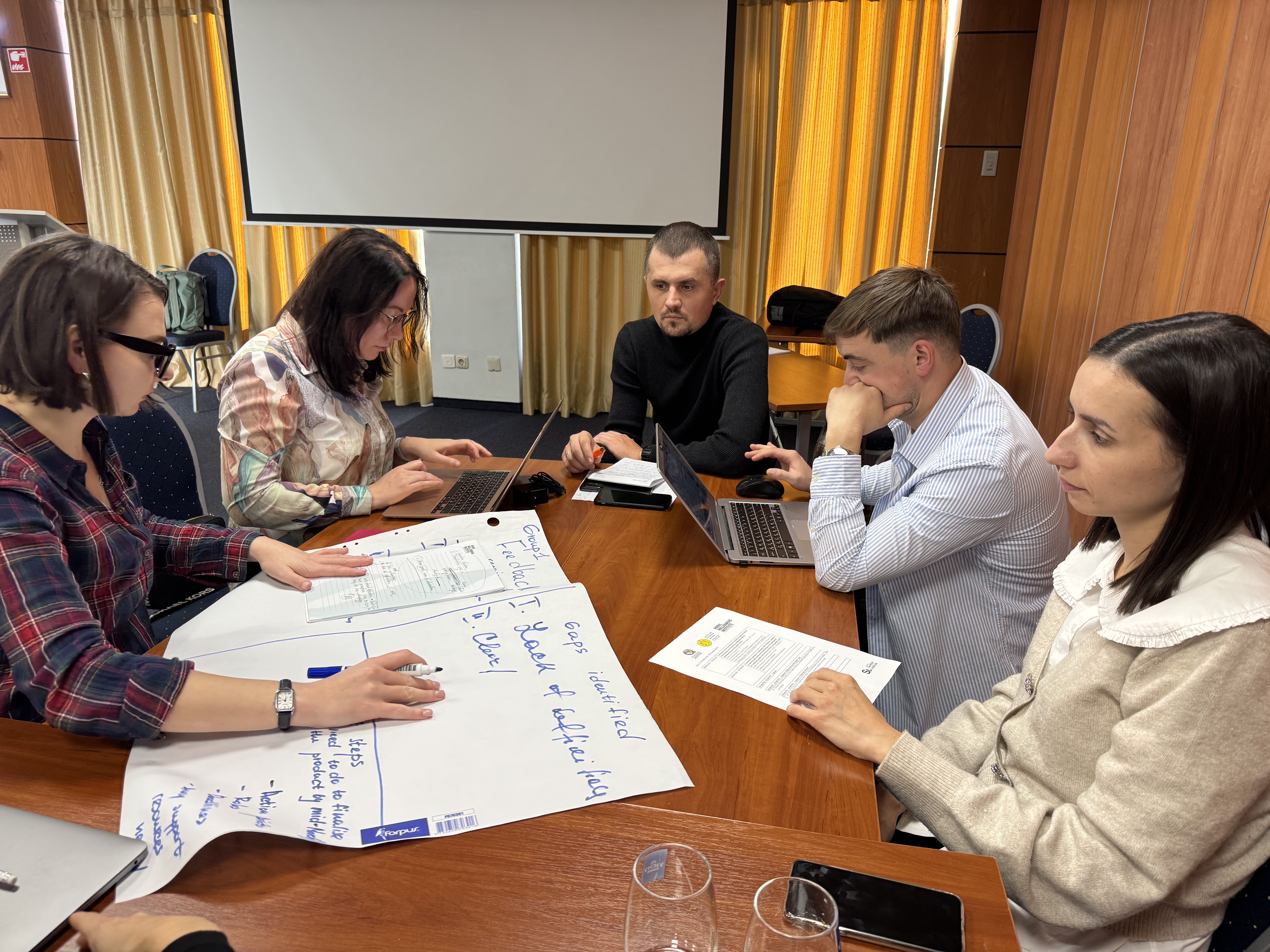
Effective management of international assistance is among the key challenges for countries undergoing democratic transformation and aspiring to join the European Union. This is particularly relevant for the Republic of Moldova and Ukraine. In the context of large-scale reforms, external threats, and growing volumes of international aid, both countries must demonstrate not only political will but also institutional capacity to ensure transparent and efficient use of financial resources in line with European standards.
The project aims to develop a practical Action Plan to minimize corruption risks in the management of international aid in Ukraine and Moldova. The team analyses common and distinct vulnerabilities in both countries and explores international best practices in transparent resource allocation.
The outcome will be an analytical Action Plan containing concrete recommendations for government institutions, donors, and oversight bodies, as well as a risk management model. The initiative contributes to enhancing accountability, transparency, and effectiveness in managing international aid — key pillars of democratic transformation and sustainable development.
- Group 2 – Compliance Lessons for the Public Sector: A Step-by-Step Guide for Ukraine and Moldova
Participants: Natalia Smetanina, Oleksandr Kurilets, Iuliia Paskevska, Maria Gogu.
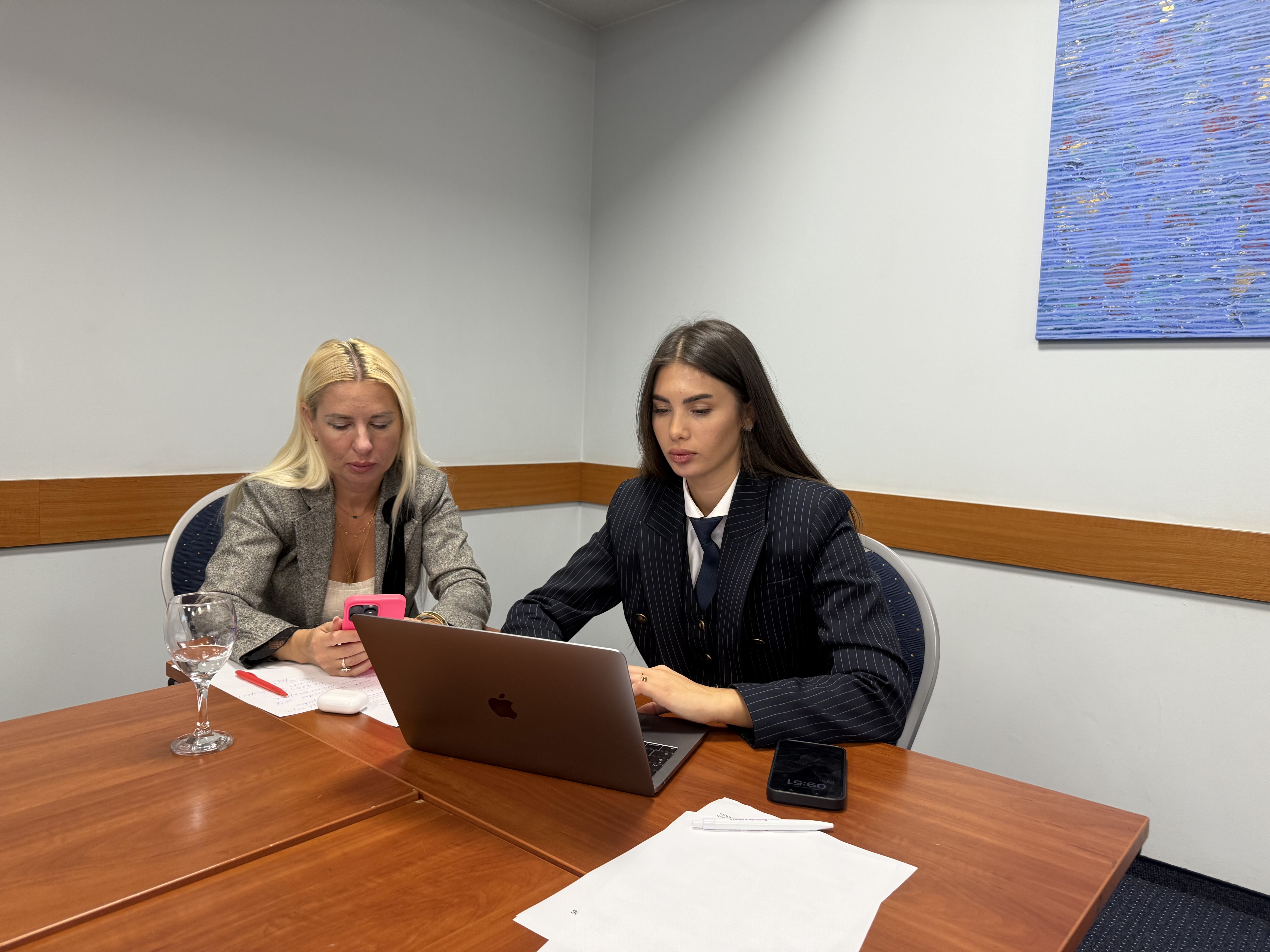
The team is developing a practical guide for public sector representatives to support compliance/anti-corruption officers and institutions in Ukraine and the Republic of Moldova in building effective anti-corruption systems.
The guide will provide step-by-step instructions for cultivating a culture of integrity and implementing core compliance mechanisms, such as:
- internal audits and investigations;
- anonymous reporting channels;
- training programmes and codes of ethics;
- risk assessment and reporting to management.
The purpose of this tool is to promote a transparent institutional environment where all team members work together towards integrity, accountability, and public trust.
Rather than introducing new rules, the guide will offer practical tools that help reduce bureaucracy and encourage the adoption of modern compliance management models.
- Group 3 – Conflict of Interest: Training Syllabus Model
Participants: Daria Bulgakova, Elena Podoleanu, Oleksiy Kravchuk, Alexandru Dragulean, Dolores Sanduta, Cristina Troianovschi, Andrei Nasu, Eugenia Zubco.
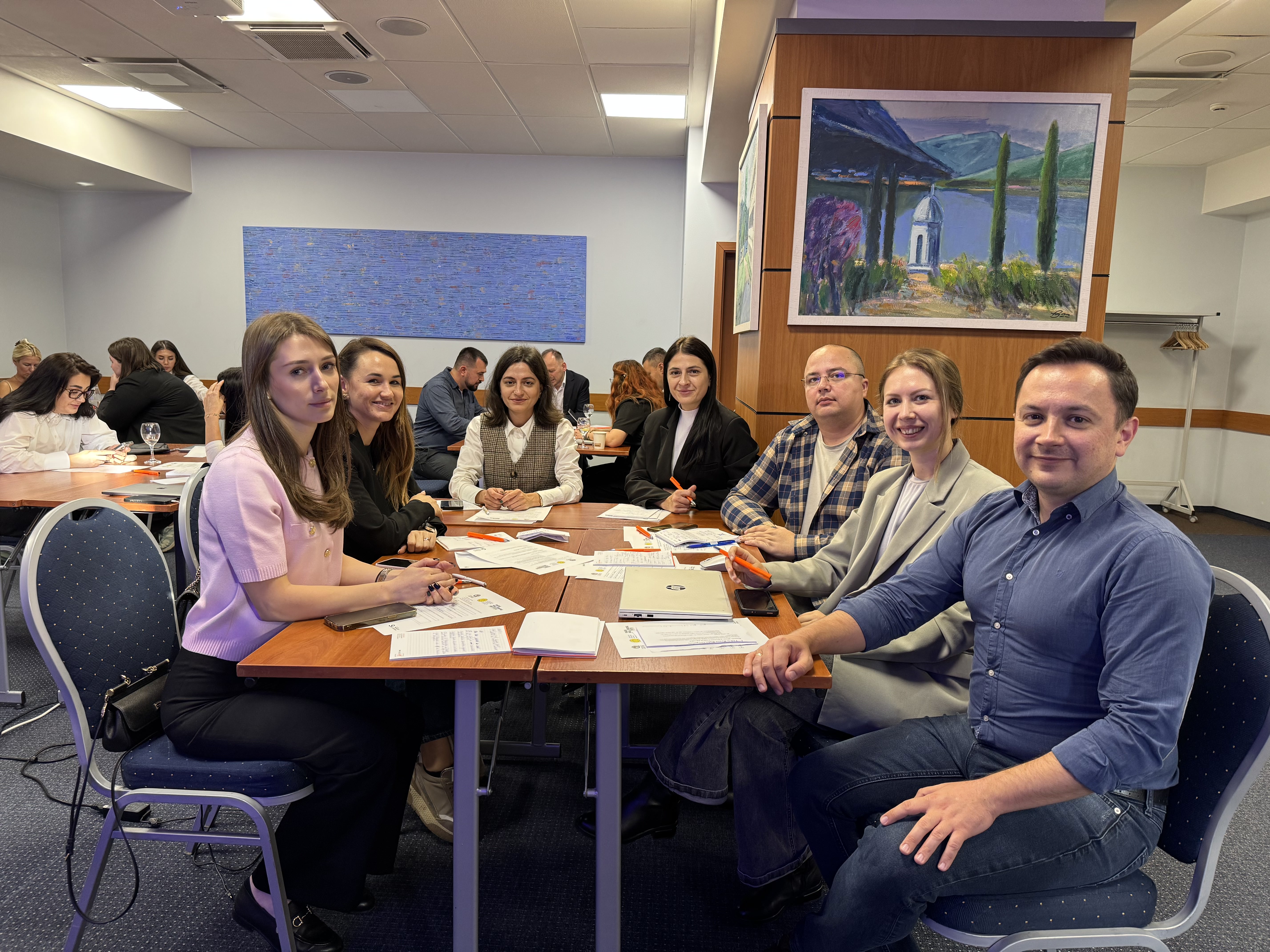
The team is developing a training course on “Conflict of Interest” designed for first-year law students. The aim of the course is to build a basic understanding of the nature of conflicts of interest, teach students to distinguish between lawful and ethically acceptable situations and violations, and develop practical skills for preventing and managing potential conflicts in their future professional activities.
Methodologically, the training combines theoretical lectures, interactive discussions, comparative analysis, practical case studies, and reflection exercises, while incorporating a human rights-based approach. This approach allows students not only to learn the relevant legal provisions but also to develop critical thinking, ethical awareness, and a commitment to integrity in their professional conduct.
The training programme covers four key topics that progress from general concepts to the practical application of legal norms and integrity standards:
- The concept of conflict of interest and areas of regulation.
- Conflict of interest in public service.
- Conflict of interest in the private sector.
- Liability for violations related to conflicts of interest.
Through discussions and reflective exercises, students will gain a solid understanding of definitions, legal frameworks, and principles of regulation, learning to recognise conflicts of interest in everyday and professional situations.
- Group 4 – Brochure “Raising Awareness about Corruption”
Participants: Diana Panov, Viorica Ursu, Vasile Buzu, Victor Cimbir, Olena Ladniak.
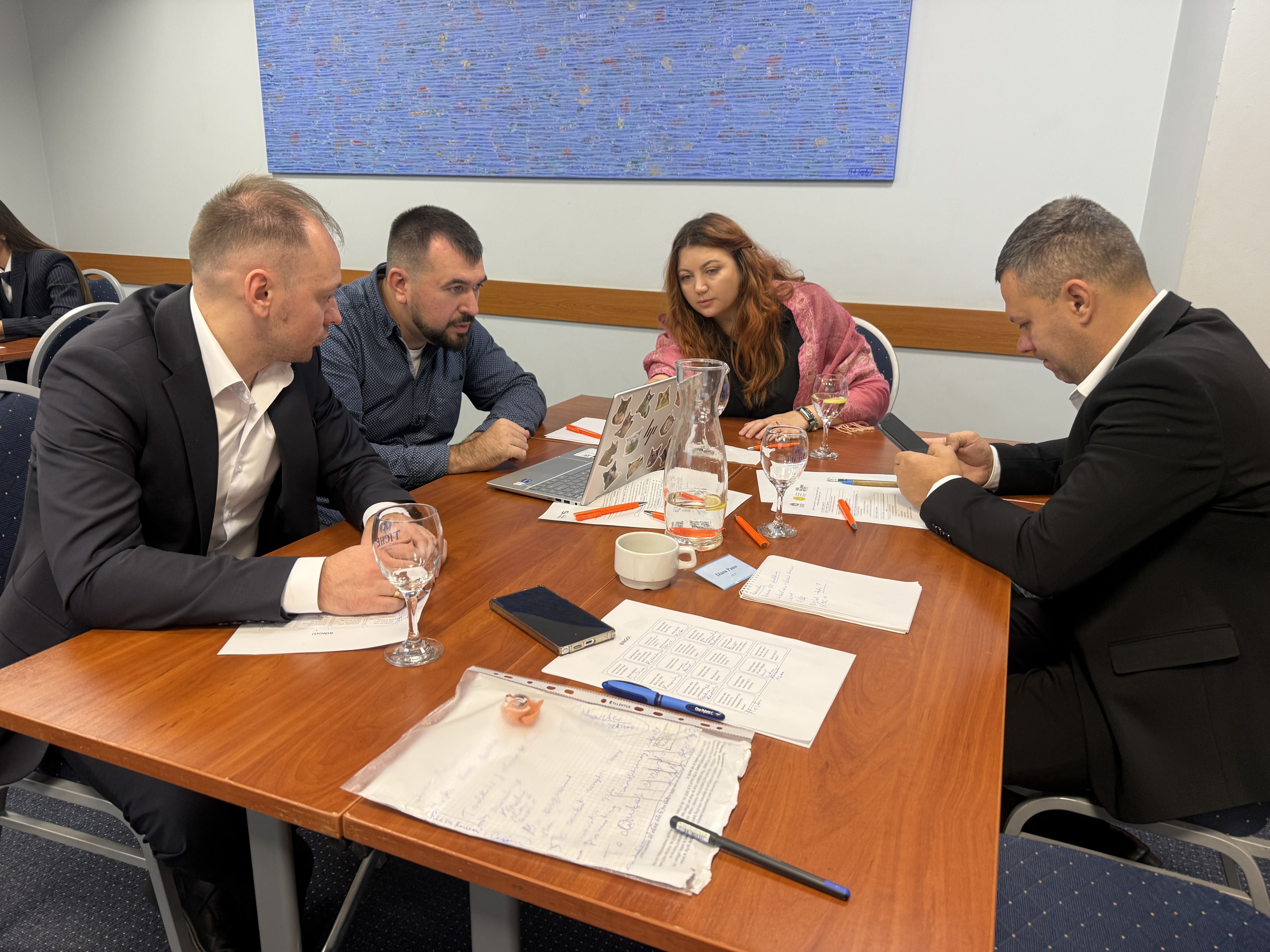
The team is working on an informational brochure in a storytelling format designed to open a new and simple way of talking about corruption. The initiative aims to raise awareness among citizens, public officials, and legal professionals about how corruption affects everyday life — and why integrity matters for everyone.
Presented in an accessible and visually engaging form, the brochure will illustrate how corruption manifests in real situations, what consequences it brings, and how responsible actions can change the outcome for the better.
The project seeks to become a modern educational tool that promotes a culture of integrity, trust, and accountability — among public officials, lawyers, and society as a whole.
The group presentations inspired lively discussions. Mentors shared their expertise, challenged assumptions, and helped participants refine the structure and logic of their projects. ACT peers also provided feedback to each group project, contributing to stronger understanding of different concepts, methodologies, frameworks and their applicability in country contexts.
Lithuanian Experience in Anti-Corruption Practices
The second day of the workshop offered participants an opportunity to explore Lithuania’s institutional experience in promoting integrity and preventing corruption.
The day began with a visit to the Special Investigation Service of Lithuania (STT) — the key institution responsible for preventing, detecting, and investigating corruption-related offences in the public sector. STT representatives spoke about the agency’s history, structure, and the progress Lithuania has achieved in combating corruption since its establishment. They also highlighted Lithuania’s performance in the Corruption Perception Index and the country’s active participation in international cooperation platforms, including the OECD Anti-Corruption Network for Eastern Europe and Central Asia.
The discussion focused on practical measures to foster a safe anti-corruption environment and strengthen public trust in state institutions. According to the “Map of Corruption in Lithuania 2023–2024” study initiated by the STT, Lithuanian citizens today are significantly less likely to encounter situations involving requests for bribes — a sign of tangible progress in building a culture of integrity.
Later, the participants visited the Chief Official Ethics Commission (COEC) — the body responsible for monitoring conflicts of interest and ensuring ethical standards among public officials. The discussion focused on the declaration and management of conflicts of interest, balancing public and private roles, and the role of communication in building public trust. This experience was of particular relevance to participants, as the issues of transparency and ethics in public service remain key challenges in both Ukraine and Moldova.
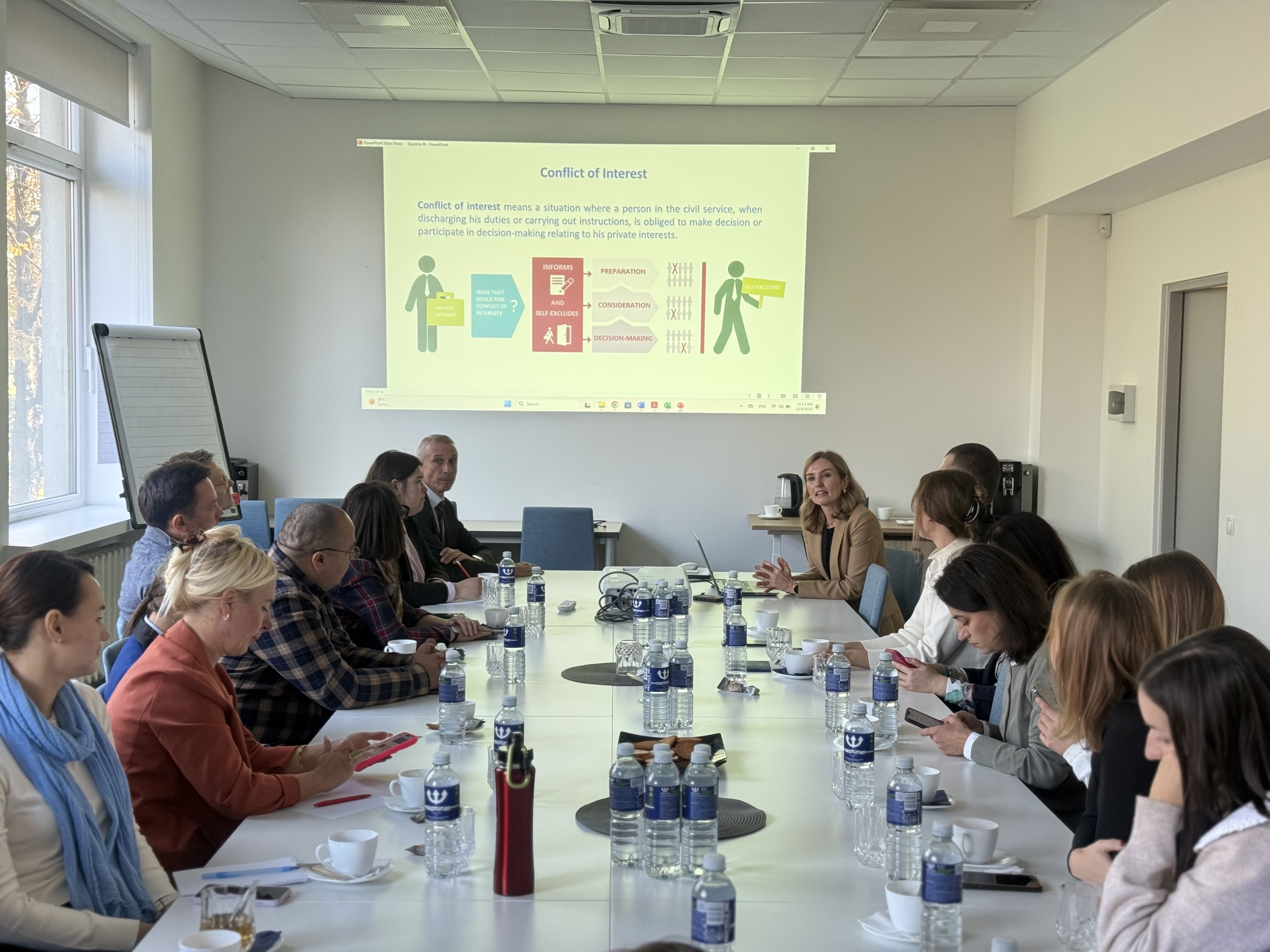
Next Steps
In the final session, the teams summarised key takeaways from the Lithuanian study visits and outlined the next steps required to finalise their group projects ahead of the final in-person meeting, which will take place in Sweden in early spring 2026.
The second offline workshop became not only an important milestone in the joint work of Ukrainian and Moldovan legal professionals but also an inspiring platform for exchange, collaboration, and mutual learning — demonstrating how shared experience can strengthen professional communities and support the fight against corruption.
